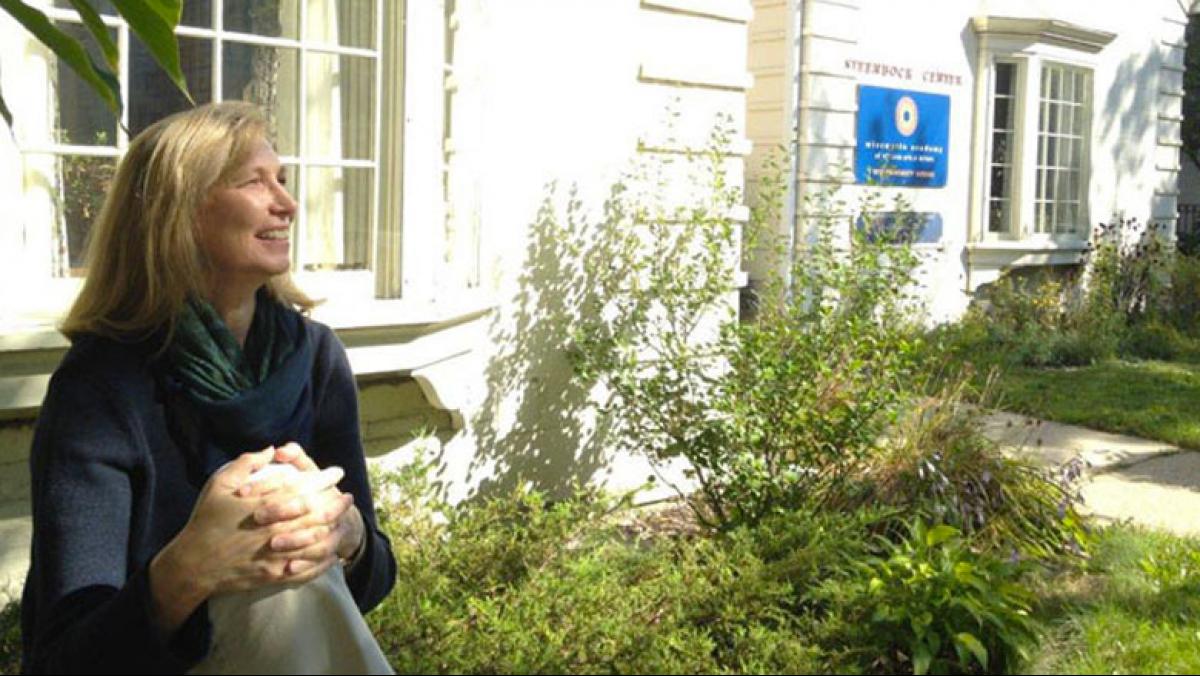As we gear up to celebrate our 150th anniversary in 2020, I’ve been reflecting on the beginnings of the Academy and the ways in which our core values—curiosity, critical thinking, creativity, and civil discourse—have informed our work for nearly a century and half.
Our formative years followed Wisconsin’s emergence as the 30th state in the Union in 1848, which was also the year the University of Wisconsin was founded. But, our core values are rooted in colonial America. In 1743 Benjamin Franklin organized the American Philosophical Society, a club for learned men to promote useful knowledge. During the American Revolution, John Adams, John Hancock and 60 other “scholar-patriots” established the American Academy for Sciences and Arts, motivated by an understanding that “a new republic would require institutions able to gather knowledge and advance learning in service to the public good.” Building a new nation with collective knowledge—not just the imposed will of a conqueror or monarchy—was perhaps a revolutionary approach on its own.
By 1848, while Wisconsin was entering statehood, the Association of American Geologists and Naturalists and other societies were busy convening a meeting in Philadelphia to establish the American Association for the Advancement of Science. Today AAAS marks this moment in history as “the emergence of a national scientific community in the United States … [whose] meetings, held in cities across the country, represented a who’s who of science.” Those AAAS meetings around the country also helped to cultivate a crop of state and local academies and societies—such as the Wisconsin Academy—that would eventually spring up across the United States.
But first came the Civil War, which diverted public attention and national resources away from scientific and cultural advancement. Still, in 1863, Lincoln signed legislation that established the National Academy of Sciences in order to “investigate, examine, experiment, and report upon any subject of science or art” whenever called upon to do so by any department of the government—thereby codifying a formal relationship between the federal government and the field of science.
This was an era when the nation was re-building and imagining what would come next after the Civil War. Around the world, science was leaping forward in ways that would transform society. The first modern periodic table of elements had been organized in 1869. Darwin’s On the Origin of Species was shaking up the world of biology. Thermodynamics, physics, and mathematics were all breaking new ground. It was an auspicious time for Wisconsin to join other states that were also creating academies where knowledgeable scientists and thinkers could better serve the public good.
This notion that knowledge could be harnessed through collective endeavor to serve our common progress was already part of the American fabric when the Wisconsin Academy’s founders approached the Wisconsin State Legislature with a request for a charter in 1870. The founders—civic leaders like John Wesley Hoyt and eminent scientists such as Thomas Chrowder Chamberlin and Increase Lapham—drew inspiration from those colonial “scholar-patriots” and followed the examples set by the AAAS and other societies to establish an academy “for the purposes of gathering, sharing, and acting upon knowledge in the sciences, arts, and letters for the betterment of the people of Wisconsin.”
As we know, the Legislature granted the charter and the Wisconsin Academy became a new chapter in the American story of embracing and exploring knowledge for the betterment of all citizens. For 149 years, through various approaches, the Wisconsin Academy has continued to pursue this charge. As we step into the next 150 years, we hope you will join us in celebrating our role in this great American experiment.




